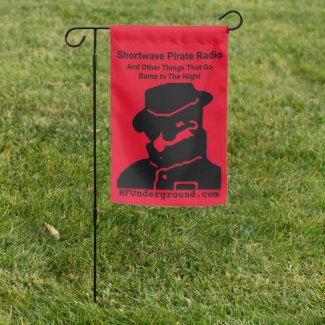After a discussion on UTwente chat today where I was roundly criticized for pointing out that it is illegal in the US to disclose the contents of intercepted communications. I am wondering what the deal is in other countries. It was pointed out to me that "its legal in free countries..." I would dispute that but I would really just be guessing. The matter came up when someone posted an EAM & I pointed out that technically that is illegal but I couldn't imagine someone actually getting in trouble for it. It seems that posting youtube vids of this sort of thing would be of questionable legality also. I recall that ,for example, in the Utility column in Monitoring Times people would log the frequency, the mode ,the user & a very general description of the actual communication without getting real specific. Can anybody shed some light on this.
First, I am not a lawyer, I do not play one on TV, and I did not stay at a Holiday Inn Express last night. With that said what follows is my understanding of these matters, and I make no guarantee of the validity.
This question is one that comes up every once in a while. To those people who say “it is legal in free countries” ask them what country they are in, and what law regulates their listening restrictions, the fact that they are not familiar with their regulations does not mean they do not exist

, and almost every nation has some restrictions. For example, I get that response a lot from Brits, but in the UK it is not legal to listen to anything that is not meant for public use, such as broadcast stations. Not only is it not legal to publish, you can’t listen.
In the US several Federal statutes impact monitoring and reporting, most people have some concept of that. But what a lot of people do not know is that local and state statutes can also limit what you can listen to or report on. Lets leave that state mess out of it and just look at Federal stuff.
According to the ECPA it is legal to monitor: any radio communications which is transmitted by any station for the use of the general public, or that relates to ships, aircraft, vehicles, or persons in distress’ by any government, law enforcement, civil defense, private land mobile, or public safety communications system, including police and fire, readily accessible to the general public; by a station operating on an authorized frequency within the bands allocated to amateur, citizens band, or general mobile radio services; or by any marine or aeronautical communications system.
So that pretty much defines that one can listen to quite a bit. Yes, certain things are prohibited in the ECPA also, such as Cell phones, but I think most people are aware of that. Of course other statutes (in the Communications Act of 1934, as amended) restrict monitoring anything encrypted.
But your question had to do with reporting / disclosing. Section 705 of the Communications Act of 1934, as Amended states: Except as authorized by Chapter 119, title 18, United States Code, no person receiving, assisting in receiving, transmitting, or assisting in transmitting, any interstate or foreign communication by wire or radio shall divulge or publish the existence, contents, substance, purport, effect, or meaning thereof, except through authorized channels of transmission or reception… It then goes on to list several exceptions, but the general public or hobby community is not included in those exceptions

It also goes on to say you cannot use such receptions for your own benefit or profit.
According to that even reporting the existence of a transmission is illegal. And US Code Title 18, Part 1, Chapter 119, section 2511 says pretty much the same thing, as does Title 47, Chapter 5, Subchapter 6, section 605.
With all of that said I have not been able to find anyone charged with these issues alone, while people have faced such charges they all appear to have been part of a larger issue, such as wiretapping a conversation.
Then you have to go to letter of the law vs spirit of the law. And I have no idea there at all

Personally I tend to self filter a little bit. If I am going to publish I generally do not include details, however as defined above even that level of reporting is illegal. If I am going to post a vid to the web I typically do not do it until the reception is fairly old, and I often only publish a small part of the total communications.
So is it illegal to report such communications? I think it probably is indeed. Am I concerned when I report such communications? Not even a little bit. If anyone is looking to prosecute for such hobby reporting they must have a lot of free time on their hands, and in today’s political and fiscal situation I am sure the news agencies would like to give that a few days play. Personally I think they (whoever would prosecute) have bigger fish to fry, and such a frivolous citation would just be inviting someone to fight the regulation, potentially weakening the protection to services that actually need / should have protection from monitoring. I think a good case could be made that decades of hobby monitoring has, when no malice is intended, not caused any problems, and so the laws as written are unnecessarily restrictive and should be changed. And a case could probably be made that if the agency has that much free time they obviously have too large a work force and budget.
T!



